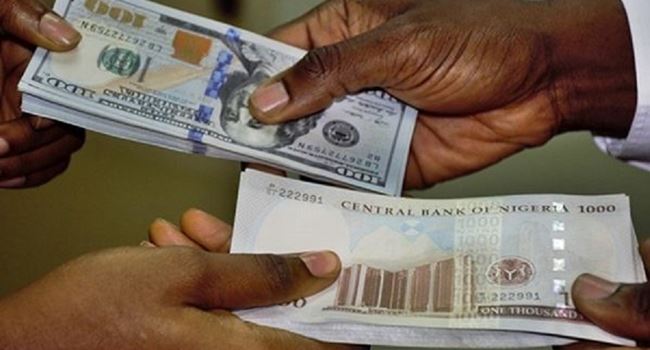The naira fell more on the foreign currency (FX) markets as signs surfaced that the Central Bank of Nigeria (CBN) may abandon its reintroduced retail Dutch auction mechanism.
On Thursday, the naira fell by 0.05% and closed at ₦1,660.49 per US dollar, according to spot FX data from the FMDQ website. FX demand exceeded the total US dollar amount available to support daily transactions at Nigeria’s autonomous foreign exchange market. This resulted in a small drop in the official exchange rate.
External reserves reached a two-year high this week, totaling over $38.8 billion, which some analysts feel is more than enough to support the local currency on foreign markets. However, a significant portion of the gross balance has been pledged as collateral for oil-backed loan arrangements, FX swaps, and other foreign reserve-related transactions.
The Central Bank of Nigeria (CBN) has continued to try strategies to keep currency rate volatility under control. The naira remains low as demand for the US dollar weakens the local currency’s strength.
Following April’s title as the best performing local currency, the World Bank has ranked the naira relatively low in its most recent rating. According to some financial analysts, the naira has steadied with modest volatility between N1500 and N1,700.
Exchange rates have been hovering around this levels since April 2024, with the CBN targeting FX auctions across the official and informal currency markets.
In August, the CBN re-introduced retail Dutch auction system with the aim of selling US dollar to FX users on demand basis. The market witnessed more than $1.1 billion bids from banks, representing their customers who required forex for eligible transactions.
Since August 8, when the Dutch auction was sold, the CBN skipped the auction for Sept. and analysts are already projecting that there may be no similar FX sales in Oct.
As the permutation about the re-introduction of retail Dutch auction appeared to have failed, the CBN has also launched a fresh initiative to automate FX trading platform.
The naira closed at ₦1,690 to the US dollar in the parallel market, from N1680 in the previous day, according to channel check. This extended the gap between official and parallel market rates to N30, fueling speculative FX trading in the informal segment.
In the global commodities market, oil prices decreased as concerns about a potential supply disruption in the Middle East diminished, with a surplus expected in the market next year. Brent crude fell by 0.54% to $73.82, and WTI dropped by 0.31% to $70.17.
In contrast, gold prices reached all-time highs due to uncertainty surrounding the U.S. presidential elections and the conflict in the Middle East, which drove investors toward this safe-haven asset. The monetary policy easing also contributed to higher gold prices, which hit $2,708.50 per ounce.













